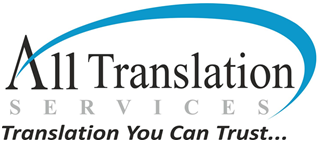The Pitfalls of AI Translation
___Why Accuracy and Nuance Matter for Businesses?
Today, businesses often need to communicate across multiple languages and cultures. The advent of AI-powered translation tools like Google Translate and DeepL has made translation more accessible and faster than ever before.
Despite these advancements, many businesses still prefer human translators for their critical communication needs. The reason? Accuracy and nuance matter profoundly in business communications, and AI translation tools often fall short in these areas.
Looking for a audio video translation service provider in Toronto, Brampton, Mississauga, Calgary, Windsor, Edmonton? Our Toronto translation company will be happy to help you.
This blog explores the pitfalls of AI translation and underscores why human translation remains an indispensable choice for businesses.
Accuracy and Misinterpretation
AI translation tools operate by processing vast amounts of language data to predict the most likely translations. While this approach works well for straightforward, commonly used phrases, it often falters with complex sentences, idiomatic expressions, and context-specific meanings.
For instance, consider the English phrase “to hit the nail on the head,” which means to describe exactly what is causing a situation or problem. A literal AI translation into another language may not convey this meaning accurately, leading to confusion or miscommunication. Businesses cannot afford such inaccuracies, especially in legal documents, technical manuals, and marketing materials where precision is crucial.
Lack of Cultural Sensitivity
Language is deeply intertwined with culture. Effective translation requires more than converting words from one language to another; it involves understanding and respecting cultural nuances. AI tools lack the cultural awareness necessary to navigate these subtleties.
For example, a marketing campaign that works well in the United States might not resonate—or could even offend—audiences in Japan due to cultural differences. Human translators, with their deep understanding of cultural contexts, can adapt messages to ensure they are appropriate and effective in the target culture.
Challenges with Industry-Specific Terminology
Different industries use specialized jargon and terminology that are often not part of everyday language. AI translation tools, which are trained on broad language data, may struggle to accurately translate these terms.
In fields like medicine, law, and engineering, using incorrect terminology can have serious consequences. A mistranslation in a medical document could lead to improper patient care, while a misinterpreted legal term might result in contractual disputes. Human translators with expertise in specific industries ensure that technical terms are translated correctly, maintaining the integrity of the original document.
Maintaining Brand Voice and Tone
Every business has a unique brand voice that reflects its identity and values. This voice is crucial for building a connection with the audience and maintaining consistency across all communications. AI translation tools often produce translations that sound flat and impersonal, failing to capture the brand’s tone.
Human translators, in contrast, can adapt their translations to reflect the brand’s personality, ensuring that the message resonates with the target audience. Whether the brand voice is formal and professional or casual and friendly, human translators can maintain this consistency, enhancing the brand’s credibility and appeal.
Quality Control and Accountability
One of the significant drawbacks of AI translation is the lack of accountability. When an AI tool produces an error, there is no one to take responsibility or correct it. This lack of quality control can lead to unnoticed mistakes that might cause significant issues down the line.
Professional human translators, on the other hand, are accountable for their work. They adhere to strict quality control processes, including multiple rounds of review and editing, to ensure the highest accuracy. Businesses can communicate directly with translators to clarify any doubts and ensure that the final product meets their standards.
Why Human Translation Will Always Be a Good Choice
Despite the advancements in AI technology, human translation remains the gold standard for several reasons:
Expertise and Experience: Human translators bring years of expertise and experience, allowing them to understand and convey the subtleties of language effectively.
Cultural Insight: Translators with cultural knowledge can adapt messages to fit the cultural context of the target audience, avoiding misinterpretations and ensuring relevance.
Specialization: Human translators often specialize in specific fields, such as law, medicine, or technology, ensuring that industry-specific terminology is accurately translated.
Personal Touch: The human element allows for creativity and adaptability in translations, ensuring that the brand voice and tone are preserved and that the communication feels authentic and engaging.
Accountability: Professional translators are accountable for their work and committed to delivering high-quality translations, providing businesses with peace of mind.
Conclusion
While AI translation tools offer speed and convenience, they fall short in areas that are critical for effective business communication. Accuracy, cultural sensitivity, industry-specific knowledge, and the ability to maintain brand voice are all areas where human translators excel. For businesses aiming to communicate clearly, accurately, and effectively across languages and cultures, human translation is not just a good choice—it’s an essential one. As AI technology continues to evolve, it may become a more reliable supplement, but the nuanced expertise of human translators will always be indispensable.
